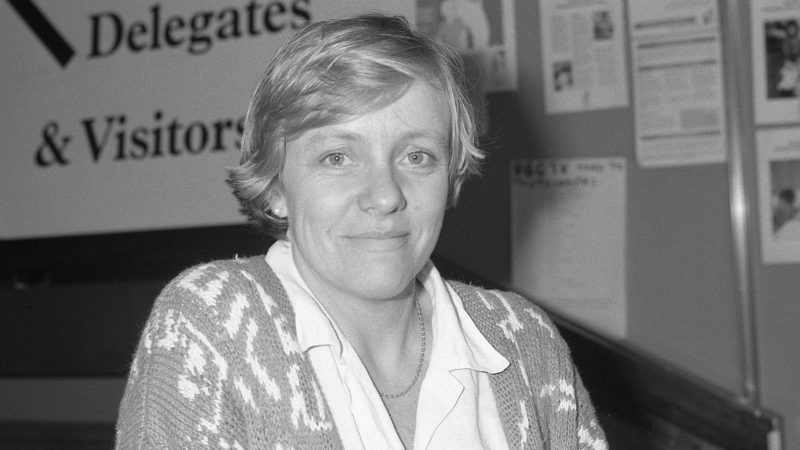
Kelly Grehan wrote movingly about the importance of not forgetting Mo Mowlam’s extraordinary contribution to the peace in Northern Ireland on the 15th anniversary of her death. I had the good fortune to have briefly dealt with her in another area where, if she had lived, I believe she might have also made a real difference – drug reform.
Whilst serving as a minister in the Cabinet Office from 1999 to 2001, her main responsibility was coordinating the government’s drugs policy. During that time, she went to Colombia three times to see for herself what was happening in what was then the hottest front of the so-called ‘war on drugs’. Being Mo, this was not limited to comfortable talks with the President and ministers in Bogotá, but meant going to the jungle to meet those risking their lives.
The then Ambassador told me how she quickly realised the enormity of the task, even finding that there was sometimes a shortage of fuel for the security services’ vehicles. She concluded that there needed to be a complete overhaul of the way that the international community approached the war on drugs, which was based on the three UN drugs conventions and their one-size-fits-all prohibitionism.
After her retirement, she forcefully made the case for reform in her memoirs Momentum, published in 2002. Her position was that prohibition made the drugs trade so profitable that it could not be stopped. It would make much more sense to have legal regulation of all drugs and tax them. The revenues should then be ringfenced for the treatment of addicts. Addiction had been a problem for a century but had never been tackled seriously by any government.
An international NGO set up that year that I worked with to campaign for drug reform, the Senlis Council, invited her as a guest of honour to its 2003 conference in Lisbon. Her speech made an utterly compelling case for change and nobody there could doubt the depth of her feelings. As the conference came to a close, her impatience about the gradual approach towards reform in UN institutions became ever clearer.
At the farewell lunch, she said that we Brits should really do something to speed things up and asked me who I knew in public life that was sympathetic to the cause. I immediately told her of the MPs and ministers that I had met since I had taken a public position on reform in 2001, just after she had retired. At the time, there was a push from the Foreign and Commonwealth Office to explore reform to the UN Conventions, but the dead hand of the Home Office had, as on so many other issues, eventually blocked progress. Finally, she said she thought a letter urging action should be sent to those I had mentioned. Would I co-sign it? Naturally, I agreed. Sadly, her declining health did not allow her to pursue things any further.
I believe that Mo Mowlam would have been the ideal leader for a drug reform movement. She was, I think, trusted in a way that no other politician has been in my very long life. She would have been listened to not only by those involved with the problem in health and law enforcement but also those living in housing estates across the UK, where drug abuse was a frightening menace. It would have needed someone of exceptional authenticity to cut through with all those people and make the case for change. Mo was undoubtedly that person.




More from LabourList
Letters to the Editor – week ending 15th February 2026
‘Labour council candidates – it’s tough, but all is not lost’
‘Labour won’t stop the far right by changing leaders — only by proving what the left can deliver’